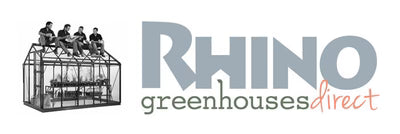Rumour has it that sowing some seeds during the first week of March is a good way to ensure healthy plants over the months to come. It's no wonder we gardeners get the seed packets and trays out during March as the daffodils are bloom, tulips are pop up, early blossom appears on the trees and even the magnolias are starting to show their buds. March is the start of spring, but don't be too impatient, as cooler weather can remain for some weeks.
There have been many reports of vine weevil over the past few years and they can completely destroy container plants. It’s a good idea to apply some Vine Weevil Nematodes as the soil warms up to stop them in their tracks at this time of year. Then keep on top of applying over the months to come. Tell-tale signs are munched edges of leaves and white larvae in the roots.
It's time to get sowing seeds and with so many to choose from this month, why not get started with lettuce, chilli peppers, sweet peas, spring onions, aubergine and so many more! If you don't have a greenhouse, you can sow seeds and place them on a sunny windowsill or in a heated propagator. It’s much easier to sow seeds with greenhouse staging, so take a look at our range.
Protection from the elements
Don't forget to use your greenhouse to protect plants from frosts. It’s hard to believe we can still get ground frosts at this time of year, especially as the winter overall has been much milder than previous years. However, frosts can surprise us right up until early May, so use your greenhouse to keep everything safe as it’s growing.
If you have containers, keep them watered. Even this early in the year, the soil can dry out, which will impact the growth of your plants. This is especially so if you have containers in a sheltered garden as its surprising how quickly they dry out. Top dress with a mulch, as that can help moisture retention.
It’s a good month to prepare for composting. With warmer, dryer weather predicted for the future it is going to be essential to feed the soil and retain moisture in sustainable ways. There is no better compost than your own garden waste. If you have space, the bigger the compost bin the better and if you are short on space there are many space-saving options available.
With the warmer weather (such as here in Norfolk) birds are nesting already, and others are busy building their warm, safe homes to lay eggs. There are many bird boxes available, but one newer box on the market is made especially for swifts.




